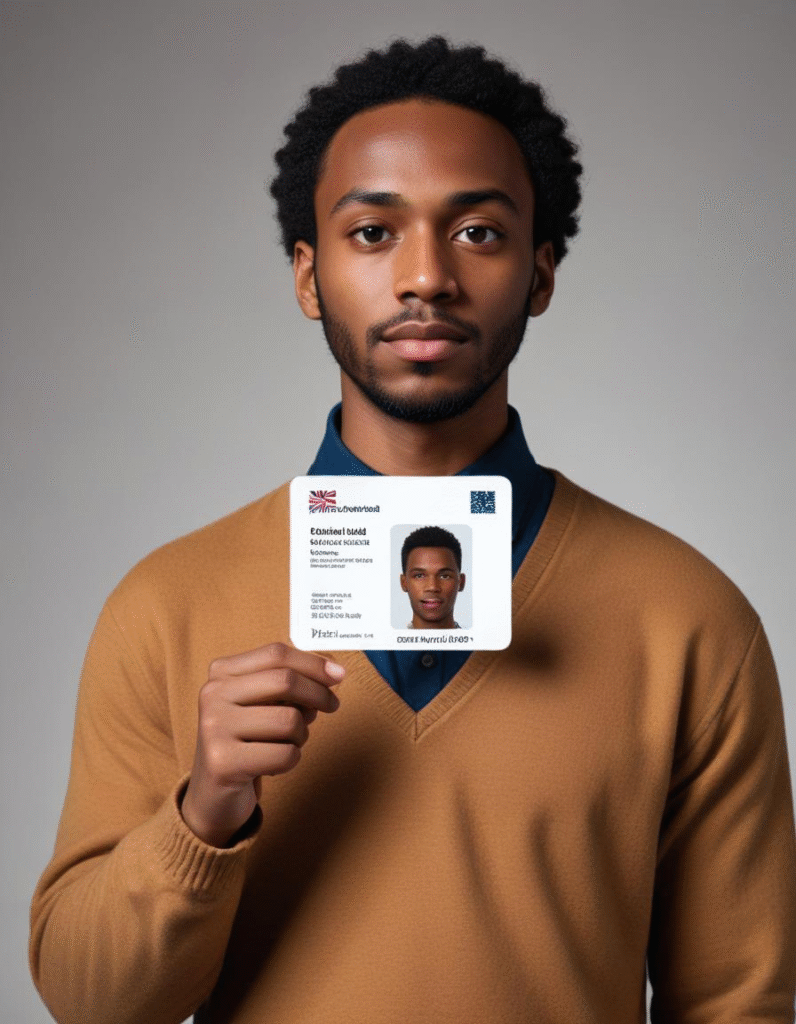
The United Kingdom is rolling out its shiny new digital ID system—sold as a modern, efficient, secure way to prove who you are. They call it “convenience.” They call it “progress.” They say it’s the future.
But for Africans living in the UK, this is not just a technical upgrade. It’s a red flag. And if you’re not paying attention, this system could quietly trap you in ways you never imagined.
Digital Chains, Wrapped in Technology
Let’s get real: the history of Africans in the UK is not one of trust, inclusion, or fairness. From the Windrush scandal, where Black Caribbean citizens who had lived in the UK for decades were suddenly branded as “illegal immigrants,” to endless immigration crackdowns that disproportionately target Black and brown people—the system has always had us in its crosshairs.
Now, imagine those same biased systems supercharged by digital IDs.
A missed update.
A glitch in the system.
A wrongly flagged record.
And suddenly, your entire life is frozen:
- No access to healthcare.
- No ability to work.
- No bank account.
- No travel.
Digital IDs don’t just check who you are—they control what you can do. And in a country where Africans already face systemic discrimination, that control is dangerous.
Africans Must Connect the Dots
The UK government says this is about streamlining services. But who will be streamlined out?
Think about it:
- The same government that deported elders of the Windrush generation without apology.
- The same police that disproportionately stop and search Black people.
- The same media that paints Africans as “illegal,” “job stealers,” or “burdens.”
And now, they want us to trust them with total digital control over our identities?
Africans in the diaspora must not be naïve. These systems are not neutral. They are built on histories of surveillance, exclusion, and racism.
Data Is the New Weapon
Digital IDs are not just about identification—they are about data.
Who controls it? Who accesses it? Who benefits from it?
For Africans, this isn’t abstract. We already know how our resources are exploited. From gold to oil to cobalt, Africa has been stripped bare. Now, in the diaspora, even our data—our digital selves—are at risk of becoming the next frontier of exploitation.
Worse, data systems can be weaponized. Imagine immigration enforcement powered by algorithms. Imagine landlords screening tenants with bias-coded systems. Imagine job applications rejected before they’re even seen because your digital ID is tied to an “immigrant” flag.
This isn’t science fiction. It’s already happening.
What Should Africans Do?
We can’t just shrug and say, “That’s the UK’s law.” Because laws have never protected us when systems are designed against us.
Africans in the diaspora must:
- Stay informed. Don’t just accept the glossy “it’s for your convenience” narrative.
- Organize. Communities must come together, share knowledge, and push back against discriminatory use of digital IDs.
- Pressure leaders. African embassies and diaspora organizations must hold the UK accountable.
- Build alternatives. Long-term, Africa itself must invest in sovereign, secure, and fair digital systems—designed for Africans, not imposed by foreign powers.
A Warning, Not Just a Policy
This is bigger than passports and logins. This is about control.
If Africans in the diaspora don’t pay attention, we could wake up one day to find our rights erased not by a law, not by a policeman, but by a line of code in a government database.
The UK digital ID is not just an upgrade. For Africans, it could become a digital chain.
And we must decide—are we going to sit quietly while they lock it around our necks?
History has already shown us: what starts as “policy” often ends as oppression. Africans in the diaspora cannot afford to sleep on this one.
